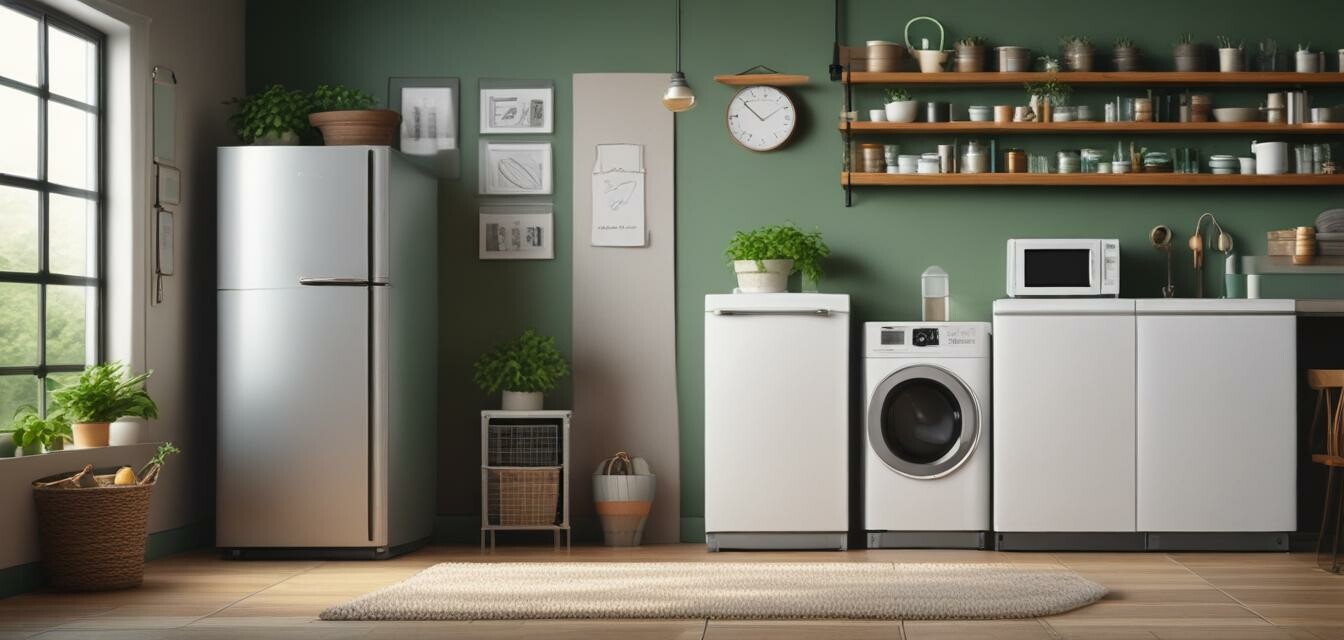
Energy Efficient Appliance Shopping Tips
Key Takeaways
- Look for Energy Star ratings for reliable efficiency.
- Understand the size and capacity you need based on your household.
- Evaluate long-term savings versus upfront costs.
- Consider the appliance's features and energy consumption.
- Read customer reviews and ratings for quality assurance.
Shopping for energy-efficient appliances doesn’t have to be overwhelming. Understanding what to look for can help you make informed decisions that save both money and electricity. This article breaks down essential tips for selecting the right appliances for your home while ensuring quality and efficiency.
1. Understand Energy Ratings
Before purchasing, it's important to familiarize yourself with energy ratings. The Energy Star label is a trusted indicator of energy efficiency. Appliances with this label have been certified to use less energy without sacrificing performance.
What does an Energy Star certification mean?
An Energy Star certification means that the appliance meets strict energy efficiency guidelines. Here’s a quick breakdown:
| Label | What it Represents |
|---|---|
| Energy Star | Certified to save energy and reduce greenhouse gas emissions. |
| ENERGYGUIDE | Provides estimated annual energy costs to compare different products. |
| EcoLogo | Defines environmental standards that products must meet. |
2. Consider Size and Capacity
The size and capacity of an appliance are crucial in ensuring it fits your needs. Here are some pointers:
- Measure your space before shopping.
- Choose appliances that suit your household size. For example, larger families may need bigger refrigerators or washing machines.
- Check the capacity in relation to your usage frequency.
3. Evaluate Costs vs. Savings
The initial purchase price of energy-efficient appliances can be higher, but they often lead to long-term savings on utility bills. Here’s how to evaluate:
| Cost Consideration | Explanation |
|---|---|
| Initial Purchase Price | Higher for energy-efficient models but often provides better technology. |
| Estimated Annual Energy Cost | Lower energy costs due to efficient operation. |
| Longevity and Maintenance | Energy-efficient appliances tend to last longer and require less frequent repairs. |
4. Investigate Appliance Features
Take note of the features an appliance offers. Here are a few to consider for energy efficiency:
- Smart technology that optimizes energy usage.
- Adjustable temperature settings.
- Enhanced insulation in refrigerators and ovens.
5. Read Reviews and Ratings
Before making a final decision, look up customer reviews and expert ratings. This information can help guide you toward appliances that are both energy-efficient and high-quality. Check both Amazon and other reputable review sites for comprehensive insights. You can also explore our News and Trends section for the latest consumer reports.
Quick Tips for Energy Efficient Shopping
- Set a budget based on both purchase price and expected savings.
- Research different brands and their energy-efficient models.
- Prioritize appliances with a longer warranty as they often indicate quality.
- Consider buying during sales events for additional savings.
- Check if local utility companies offer discounts or rebates for purchasing Energy Star products.
Pros
- Lower energy bills over time.
- Reduced environmental impact.
- Improved technology and features.
- Potential rebates from local governments or utilities.
Cons
- Initial costs can be higher.
- May require time to research correctly.
- Some energy-efficient models may have limited features compared to standard ones.
Conclusion
Shopping for energy-efficient appliances can seem daunting, but following these tips can lead you to quality products that align with your sustainability goals. Ensure you're considering energy ratings, size, costs, and customer reviews to make the best choices for your home. Don't forget to check out our additional resources in the Tips and How-to Articles section for more guidance on optimizing your appliance usage.
